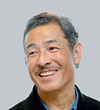Kyoto Prize Winners 2006 announced
21 July 2006
The world-renowned Designer Issey Miyake, the Japanese mathematician Hirotugu Akaike and the American immunologist and Geneticist Dr. Leonard Arthur Herzenberg have been awarded the 2006 Kyoto Prizes. The Kyoto Prize is presented for extraordinary lifelong achievements in the areas of Advanced Technology, Basic Science and Arts and Philosophy. It is one of the highest international awards for services to science and culture. The award, which comes with a prize money of 50 million Yen (around Euro 400,000) for each category, is one of the world’s highest honours in this sector, alongside the Nobel Prize. It was founded in 1984 by Kazuo Inamori, the founder of the Japanese technology group Kyocera. The award ceremony will be held on the 10th of November in Kyoto, Japan.
Dr. Akaike contributed enormously to statistical science and modeling with the development of the Akaike Information Criterion (AIC), which was formulated in the early 1970s. The AIC, a new practical, yet versatile criterion for the selection of statistical models, based on basic concepts of information mathematics. This criterion established a new paradigm that bridged the world of data and the world of modeling, thus contributing greatly to the information and statistical sciences.
Outstanding contribution to life sciences with the development of a flow cytometer that uses fluorescent-labeled monoclonal antibodies were developed by Dr. Leonard Arthur Herzenberg. Dr. Herzenberg is an immunologist and geneticist who took the lead in developing a flow cytometer called the Fluorescence-Activated Cell Sorter (FACS) that automatically sorts viable cells by their properties. Combining fluorescent-labeled monoclonal antibodies as FACS reagents with this instrument, Dr. Herzenberg made an enormous contribution towards the dramatic advancement of life sciences and clinical medicine as we know it today.


